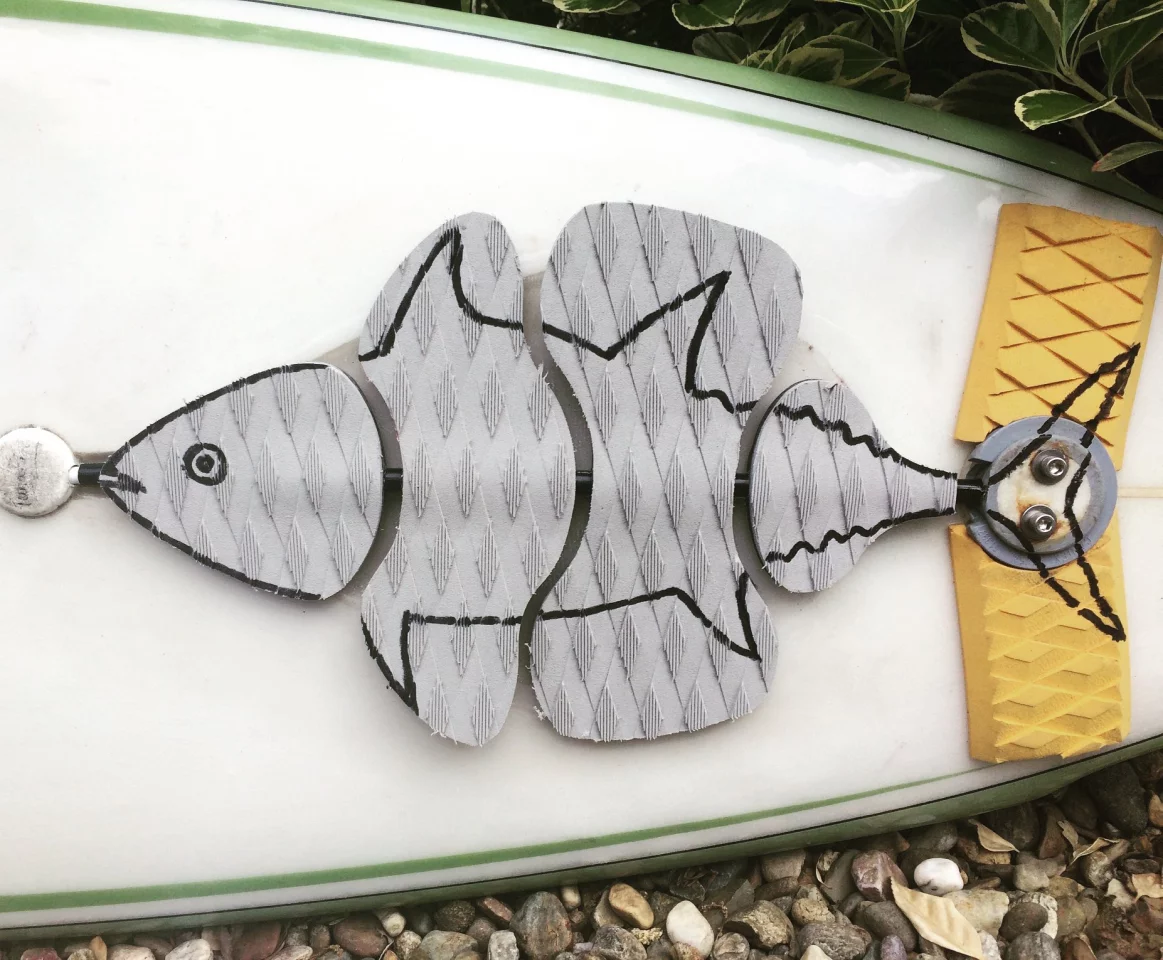While pretty much all surfboards have fins that improve their directional stability, those fins are typically fixed in one position. Dilling SurfCraft boards are different, though, in that their fin pivots with the surfer's back foot.
Invented by California-based surfer Klaus Dilling, the boards incorporate his patented TunaFlex system. At the heart of that setup is a fin which pivots slightly to the left or right, relative to the rest of the board. A shaft runs from the fin itself, up through a hole in the board, and is crowned with a disc-shaped appendage that sits flat against the deck on top.
Attached to that disc is a flexible rod that runs lengthwise down the center of the rear end of the deck, covered and cushioned by a rubber pad. Both the rod and the pad are anchored at either end, but are free to flex from side to side in between.

When the surfer stands with their back foot on the pad, they're able to push it and the rod back and forth – left to right – as they move their foot. As the rod moves, it turns the linked fin accordingly.
That said, the user isn't really intended to make a conscious effort to turn the fin, steering the board as if it were a boat. Instead, the idea is that as they carve into turns the regular way – by shifting their weight – the momentum will naturally cause their back foot to slide towards the outside of the turn. Doing so will change the angle of the fin, reportedly allowing the board to execute the turn with more panache.
Dilling has turned to Kickstarter to finance production of the boards, and is offering backers their choice of five separate models, each one designed with different types of users in mind. Pledge levels range from US$800 to $950, with shipping estimated for August ... if the surfboards reach production.
The TunaFlex system is demonstrated in the following video.
Source: Kickstarter






